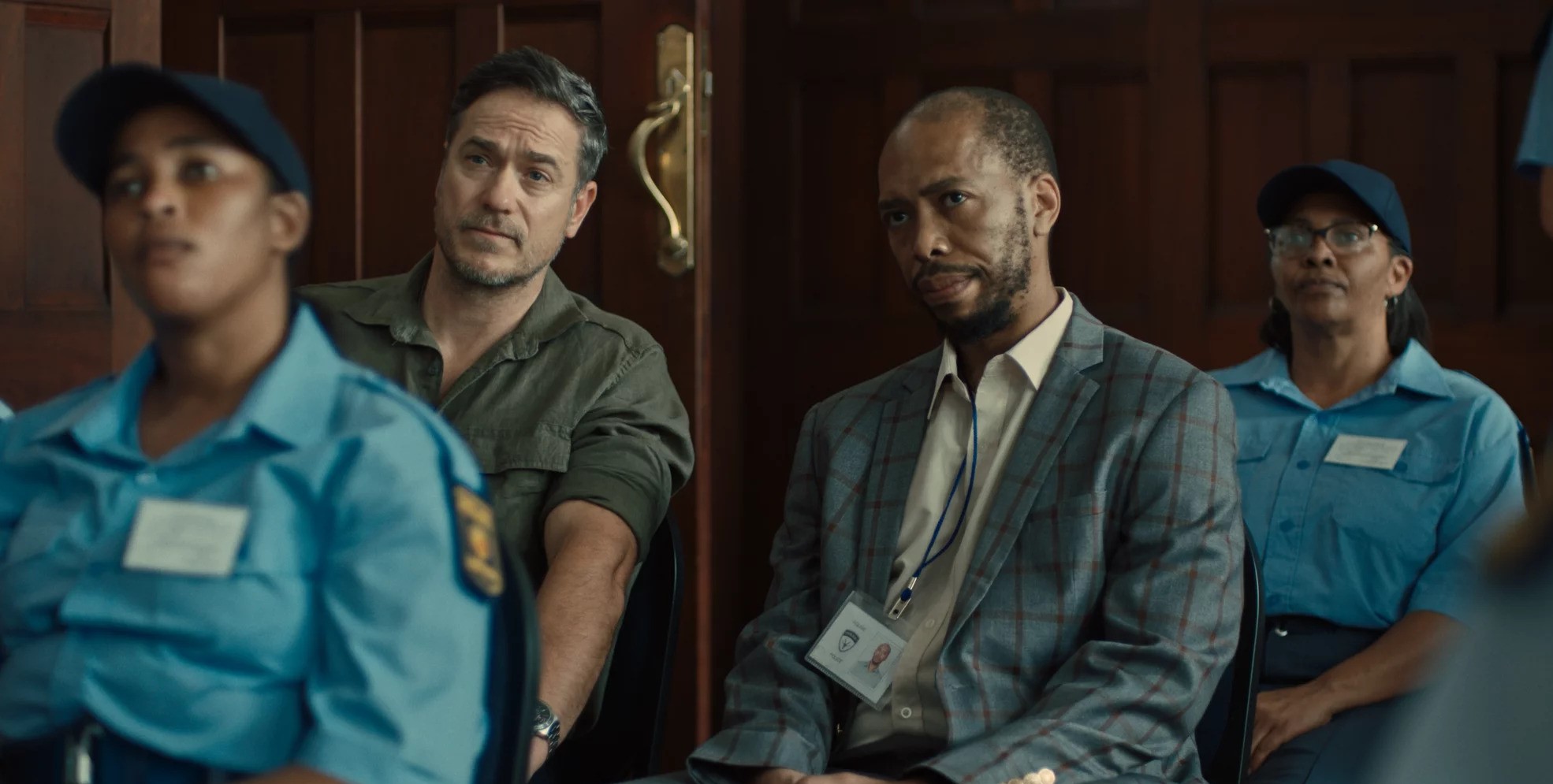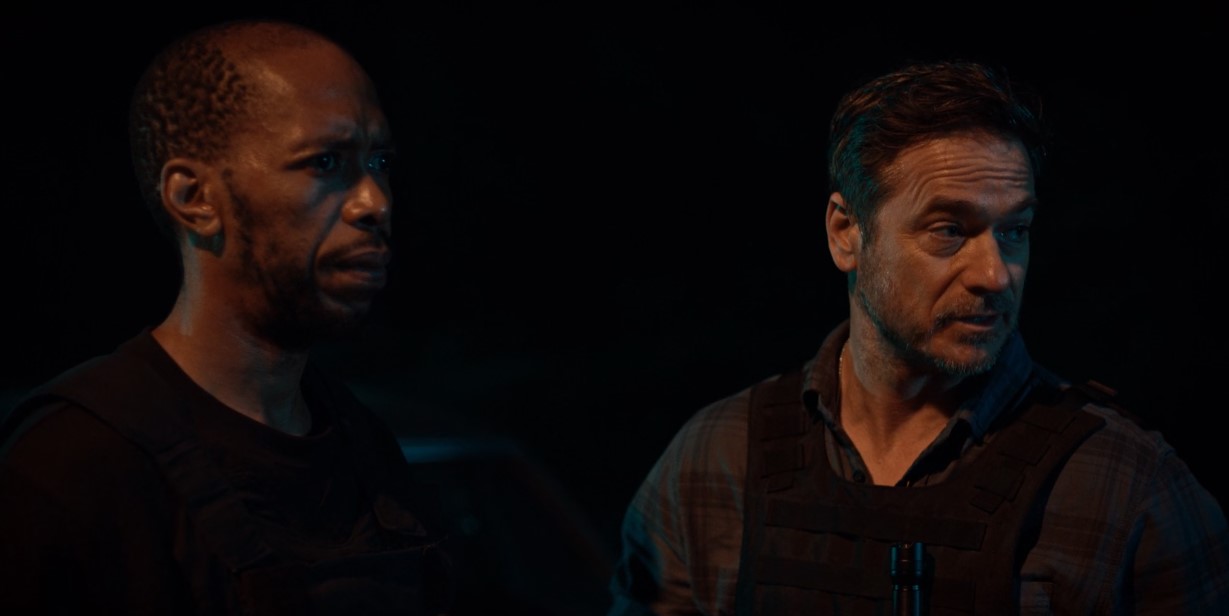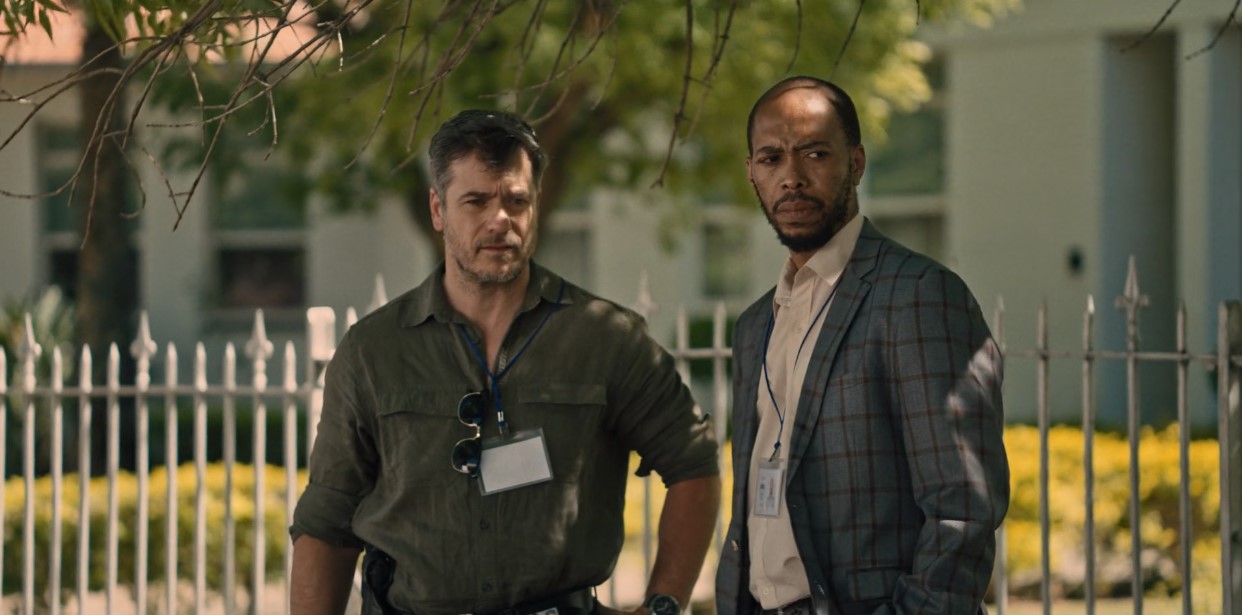Directed by Fabian Medea, ‘Wild Is the Wind’ is a South African film about two corrupt cops, Vusi and John, who try to solve the murder of an Afrikaner girl named Melissa. Set in an isolated town in the southern part of Africa, the film follows Vusi and John, who can barely make ends meet. While the former is soon going to have a baby, the latter seems to be losing his farm. These monetary issues lead them to indulge in corrupt practices in order to earn a certain degree of stability and lead a decent life. However, things take a dark turn when they discover the body of a young girl named Melissa.
As the incident causes civil unrest among the people, we see the morality of the officers clash with their selfish interests. While the two are hell-bent on solving the case as soon as possible to receive the reward money, their conscience makes them question their decisions. Amidst the racial tension between the communities in a small town, problems such as societal stigma and personal wrongdoings take higher precedence. Peppered with compelling performances by the cast, the story has an innate sense of realism, which makes the audience wonder if the movie is based on actual events. Let’s find out!
Wild Is the Wind: A Work of Fiction
No, ‘Wild Is the Wind’ is not based on a true story. The crime drama film is a fictional tale written and directed by debutant Fabian Medea that depicts various aspects of society, such as racial discrimination, poverty, and the grey morality of the general public. Showcasing The story of Vusi and John demonstrates how the human psyche is innately hypocritical and how the choices of various characters drastically change under different circumstances.

The film surrounds this predicament of the two people and also shows how their most minor decisions have a major effect on the people’s mindset. Although the two cops choose their interests at the beginning, as the movie unfolds, we see one of them rethink their actions, and his intentions slowly evolve. The movie lays a significant amount of emphasis on how racial stereotypes come from a deep-seated place and how difficult it truly is to overcome them. Various scenes in the movie stand testament to this statement.

For instance, in one scene, Vusi tells his partner, John, how the death of a white girl has stirred an entire town, but nobody bats an eye when it comes to the deaths of black people. A similar analogy is given by a gangster when the police search a predominantly black neighborhood. The film seems to borrow themes of racial discrimination and inequality from movies and shows such as ‘When They See Us,’ and ‘If Beale Street Could Talk.’ It also carries other tropes, such as a corrupt cop questioning his conscience, the fickle-minded nature of people, and how the court of public opinion can disrupt society’s harmony.
The director brings together all the aforementioned themes and blends them into a narrative that leaves you with a heavy heart and makes you question things. It makes you wonder if people are truly a product of their conditioning and circumstances or if they choose who they want to be and how they want to lead their life in society. So, to reiterate, although ‘Wild Is the Wind’ isn’t based on a true story, it throws light on realistic problems in a powerful and authentic manner.
Read More: Where Was Wild Is the Wind Filmed?


You must be logged in to post a comment.